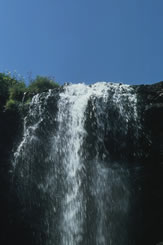 Historic recognition of Human Right to Safe Drinking Water & Sanitation at UN
Historic recognition of Human Right to Safe Drinking Water & Sanitation at UN
The 3rd Commission of the 64th General Assembly of the United Nations made history last 28th July by overwhelmingly adopting the draft resolution proclaiming the Human Right to Safe drinking Water and Sanitation. Presented by Bolivia and 34 other States, the resolution received 122 voted in favour with no votes against and 41 abstentions.
The resolution that was adopted today “declares the Right to Safe and clean drinking water and sanitation as a human right that is essential for the full enjoyment of life and all human rights.”
It also “calls upon States and international organisations to provide Financial resources, capacity building and technology transfer, through international assistance and co-operation, in particular to developing countries, in order to scale up efforts to provide safe, clean, accessible and affordable drinking water and sanitation for all.”
Whereas another UN resolution on the ‘right to development’ set a precedent by acknowledging the Right to food and to clean water 10 years ago, this marks the first time a resolution entirely dedicated to the Right to water and sanitation is adopted and by such an important number of countries, including industrialized. It also goes further than the previous resolution by proclaiming sanitation a human right and by clarifying the Right to water.
While the resolution only needed support from a majority of the States present, the fact that no State opposed the resolution also sets an encouraging precedent in the advancement of the realization of these Rights.
A resolution has no binding mechanisms attached to it like a Convention or a protocol would. However, it carries tremendous political weight, enough to provoke harsh negotiations between States, to help advance key issues on the international agenda and to trigger national endorsements.
The United Nations estimates that nearly 900 million people live without clean water and 2.6 billion without proper sanitation. At least 4,000 children die every day from water-related diseases. These numbers demonstrate the importance of the step taken today towards the realization of this Right.
--
Vote on Human Right to Water and Sanitation
The draft resolution on the human right to water and sanitation (document A/64/L.63/REV.1) was adopted by a recorded vote of 122 in favour to none against, with 41 abstentions, as follows:
In favour: Afghanistan, Algeria, Andorra, Angola, Antigua and Barbuda, Argentina, Azerbaijan, Bahamas, Bahrain, Bangladesh, Barbados, Belarus, Belgium, Benin, Bhutan, Bolivia, Brazil, Brunei Darussalam, Burkina Faso, Burundi, Cambodia, Cape Verde, Central African Republic, Chile, China, Colombia, Comoros, Congo, Costa Rica, Côte d’Ivoire, Cuba, Democratic People’s Republic of Korea, Democratic Republic of the Congo, Djibouti, Dominica, Dominican Republic, Ecuador, Egypt, El Salvador, Equatorial Guinea, Eritrea, Finland, France, Gabon, Georgia, Germany, Ghana, Grenada, Guatemala, Haiti, Honduras, Hungary, India, Indonesia, Iran, Iraq, Italy, Jamaica, Jordan, Kuwait, Kyrgyzstan, Lao People’s Democratic Republic, Lebanon, Liberia, Libya, Liechtenstein, Madagascar, Malaysia, Maldives, Mali, Mauritius, Mexico, Monaco, Mongolia, Montenegro, Morocco, Myanmar, Nepal, Nicaragua, Niger, Nigeria, Norway, Oman, Pakistan, Panama, Paraguay, Peru, Portugal, Qatar, Russian Federation, Saint Lucia, Saint Vincent and the Grenadines, Samoa, San Marino, Saudi Arabia, Senegal, Serbia, Seychelles, Singapore, Slovenia, Solomon Islands, Somalia, South Africa, Spain, Sri Lanka, Sudan, Switzerland, Syria, Tajikistan, Thailand, The former Yugoslav Republic of Macedonia, Timor-Leste, Togo, Tunisia, Tuvalu, United Arab Emirates, Uruguay, Vanuatu, Venezuela, Viet Nam, Yemen, Zimbabwe.
Against: None.
Abstain: Armenia, Australia, Austria, Bosnia and Herzegovina, Botswana, Bulgaria, Canada, Croatia, Cyprus, Czech Republic, Denmark, Estonia, Ethiopia, Greece, Guyana, Iceland, Ireland, Israel, Japan, Kazakhstan, Kenya, Latvia, Lesotho, Lithuania, Luxembourg, Malta, Netherlands, New Zealand, Poland, Republic of Korea, Republic of Moldova, Romania, Slovakia, Sweden, Trinidad and Tobago, Turkey, Ukraine, United Kingdom, United Republic of Tanzania, United States, Zambia.
Absent: Albania, Belize, Cameroon, Chad, Fiji, Gambia, Guinea, Guinea-Bissau, Kiribati, Malawi, Marshall Islands, Mauritania, Micronesia (Federated States of), Mozambique, Namibia, Nauru, Palau, Papua New Guinea, Philippines, Rwanda, Saint Kitts and Nevis, Sao Tome and Principe, Sierra Leone, Suriname, Swaziland, Tonga, Turkmenistan, Uganda, Uzbekistan.
--
Read also:
United Nations General Assembly recognizes Human Right to Water and Sanitation
| Contact information | n/a |
|---|---|
| News type | Inbrief |
| File link |
http://www.un.org/News/Press/docs/2010/ga10967.doc.htm |
| Source of information | http://www.gci.ch/en/communication/news/news-of-green-cross-international/33-news/659-historic-recognition-of-human-right-to-safe-drinking-water-a-sanitation-at-un |
| Keyword(s) | right to water, right to sanitation, human right |
| Subject(s) | DRINKING WATER , DRINKING WATER AND SANITATION : COMMON PROCESSES OF PURIFICATION AND TREATMENT , RIGHT |
| Relation | http://www.emwis.net/topics/WaterRight |
| Geographical coverage | International |
| News date | 29/07/2010 |
 you are not logged in
you are not logged in





